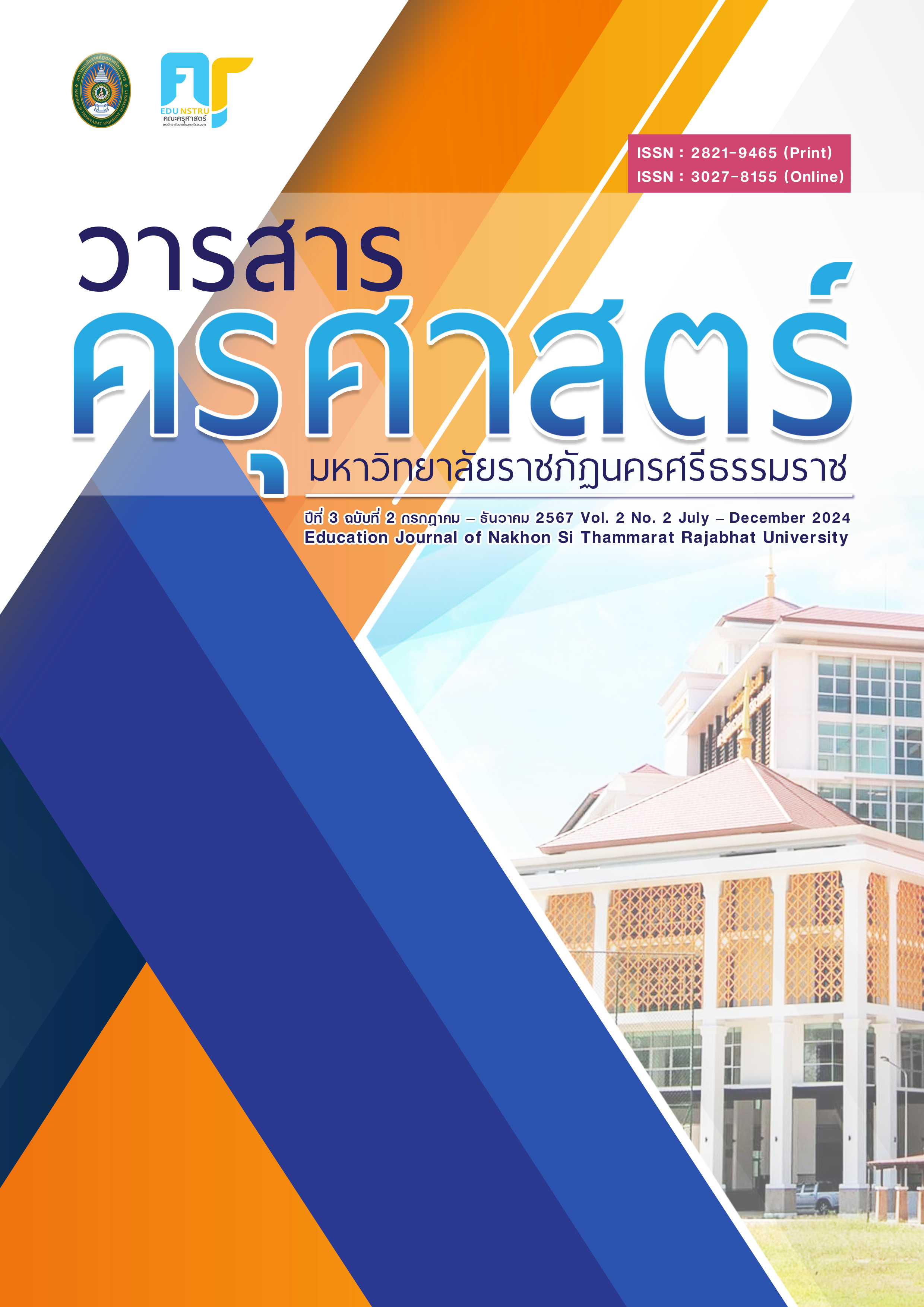Development of Learning Achievement in Mathematics for Marine Engineering Using Scientific Calculators
Main Article Content
Abstract
Development of learning achievement in mathematics for marine engineering using scientific calculators. It is Quasi–experimental research. The purposes of this research were to compare the learning achievement after using scientific calculators in the learning management with the 70% criterion and assess satisfaction. The samples consisted of 48 cadets enrolled in Mathematics for Marine Engineering 2 in the first semester of 2024 by use purposive sampling. The research instruments were course specification, an achievement test consists of Power Series, Approximate Integration and Newton-Raphson Method and satisfaction assessment. Researchers prepare the use of scientific calculators for the learners, conducted teaching, and demonstrated the use of scientific calculators in solving problems. The data were analyzed using mean, standard deviation, and Z-test. The research found that the score average learning achievement after learning management using scientific calculators calculated as 75.64 percent was significantly higher than 70 percent at 0.05 significant level, and overall satisfaction was at the highest level. Therefore, scientific calculators help improve learning achievement and make learners feel satisfied with learning mathematics.
Article Details

This work is licensed under a Creative Commons Attribution-NonCommercial-NoDerivatives 4.0 International License.
บทความที่ได้รับการตีพิมพ์เป็นลิขสิทธิ์ของวารสารครุศาตร์ มหาวิทยาลัยราชภัฏนครศรีธรราช
ข้อความที่ปรากฏในบทความแต่ละเรื่องในวารสารวิชาการเล่มนี้เป็นความคิดเห็นส่วนตัวของผู้เขียนแต่ละท่านไม่เกี่ยวข้องกับวารสารครุศาสตร์ มหาวิทยาลัยราชภัฏนครศรีธรรมราช
References
Abdul Rahman, M. S., Abu Mansor, S. N. & Saad, S. M. (2022). Scientific Calculator Proficiency and Competency Among Secondary School Students in Mathematics Education. International Journal of Academic Research in Progressive Education and Development, 11(2), 681- 689. Retrieved from https://ijarped.com/index.php/journal/article/view/1825
Andreev, I. (2024, January 11). Bloom’s Taxonomy. Valamis. https://www.valamis.com/hub/blooms-taxonomy
Ayamath, R., Awuitor, G. K. & Puotier, Z. (2020). The role of Calculator use in Mathematics Problem-Solving Abilities of Pupils at the Junior High School in Ghana. IOSR Journal of Mathematics, 16(5), 28-35. Retrieved from https://www.researchgate.net/publication/374545304
Beros, J., Bono, K. A. B., Chavez, M. C. A. D., Labrador, L. J., Jesus, R. B. D., Datiles, M. R. P. & Tus, J. (2024). Calculator Usage and its Relationship on Student’s Perception of their Fundamental Mathematical Skills. Psychology and Education, 18(3), 247-254. Retrieved from https://www.researchgate.net/publication/379754773
Dagan, M., Satianov, P. & Teicher, M. (2020). Improving Calculus Learning Using a Scientific Calculator. Open Education Studies, 2(1), 220-227. https://doi.org/10.1515/edu-2020-0125
Jeremiah, A. M. (2020). Effect of Use of Scientific Calculators on Yamfo Anglican Senior High School Students’ Mathematical Achievement. International Journal of Engineering and Applied Sciences, 7(10), 5-15. https://doi.org/10.31873/IJEAS.7.10.11
Marasigan, N. V. (2018). Examining Calculator Use in the Mathematics Classroom. International Journal of Recent Innovations in Academic Research, 2(8), 165-170. Retrieved from https://www.ijriar.com/docs/2018/2018-dec/IJRIAR-15.pdf
Radzuan, F. S., Kamarudin, N., Md Khambari, M. N., & Mohamad Arsad, N. (2021). Impact of scientific calculators in mathematics among low- achieving students in a secondary school in Kajang, Selangor. Pertanika Journal of Science & Technology, 29(S1). 199-214. https://doi.org/10.47836/pjssh.29.s1.11
Sarakhan, N. (2021). How to Teach the Students to Arise Mathematical Skills and Processes?. Journal of Roi Kaensarn Academi, 6(4), 202–218. Retrieved from https://so02.tci-thaijo.org/index.php/JRKSA/article/view/247700 (in Thai)
Sharma, D. (2024, May 10). Making Math Fun: Creative Ways to Use Your Casio Scientific Calculator for Learning. Linkedin. https://www.linkedin.com/pulse/making-math-fun-creative-ways-use-your-casio-learning-divya-sharma-gtxtc
Srisa-ard, B. (2017). Basic Research. (10th ed.). Bangkok: Suweeriyasan. (in Thai)
Vardy, O. (2024, January 9). How to Use Scientific Calculator. Meta-Calculator Blog. https://www.meta-calculator.com/blog/how-to-use-scientific-calculator/


